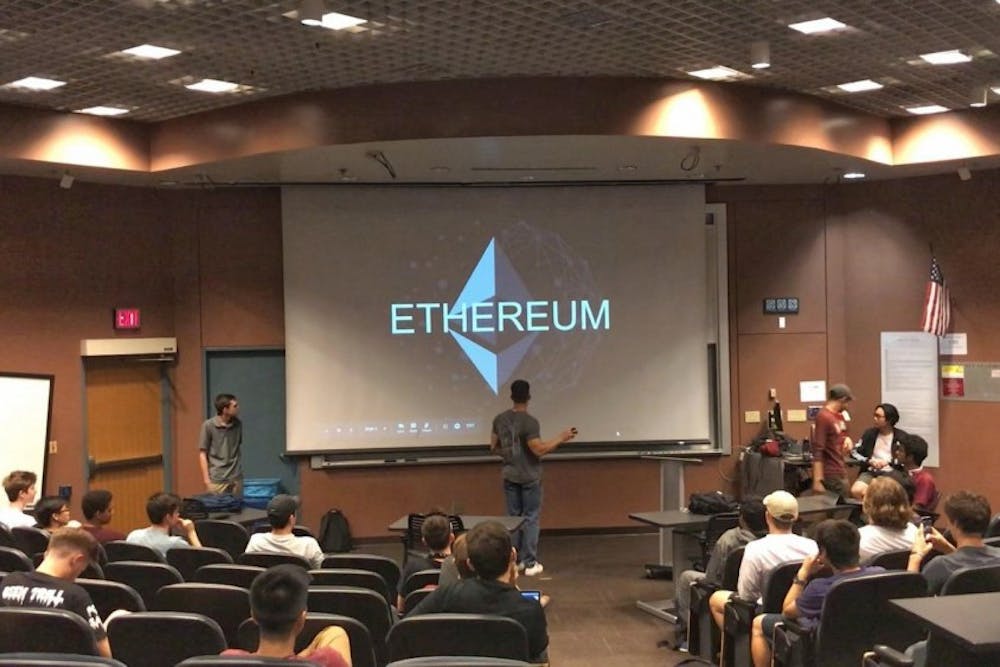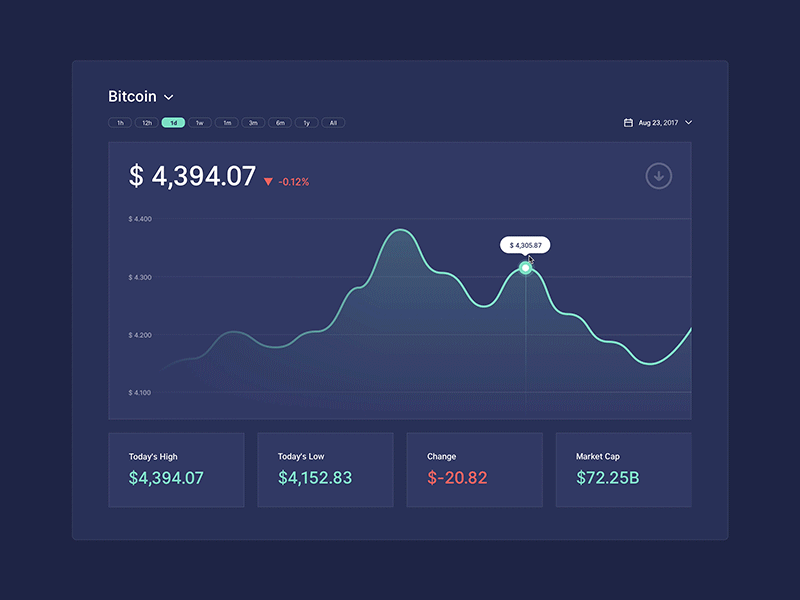Bitcoin can be a very dense and confusing subject – it is one of over a thousand transactional cryptocurrencies available today. Regardless, it has grown since its inception just under a decade ago.
Recently, the exchange rate of one bitcoin rose to 7,000 USD – an all-time high, doubling its price from the beginning of 2017. The blockchain market shows no signs of slowing down.
To learn more about blockchain technology and the local cryptocurrency scene, many ASU students attend meetings for the Blockchain Innovation Society (BIS), a new ASU student organization founded this semester.
“We do not offer investment advice, just education and preparation,” Thomas Shivers, a freshman in economics and officer for the BIS Investing Committee, said.
One of their meetings featured an informative and socratic lecture about Ethereum, another cryptocurrency with a large value of market share. Officers switched off, deferring to their colleagues when the information presented was in their area of expertise and experience. Every lecturer paused frequently to ask if there were any questions, something very valuable for something as dense as cryptocurrency.
GIF by Shakuro
"Every once in a while I come across someone that I'm like, ‘Holy crap,’ they've got this ridiculous experience or participated in the Ethereum ICO. We have people that are full-stack Solidity developers, and then we have people that haven't heard of Ethereum," Shivers said. "The range of knowledge is actually, I think, a strength of our club rather than a weakness and it allows us to kind of build on each other.”
The BIS has four committees: Investing, Education, Research & Development and Consulting. There are no requirements to join the club.
Jeremy Liu, a sophomore in computational mathematics and an officer for the Research and Development committee, spoke about the goals he had for both his committee and the BIS in general.
“We're really big on learning right now, but next semester we're hoping to do some cool things," Liu said.
"Right now in the R&D committee, we're doing a lot more 'research-side,' learning how the blockchain works on a technical level more than these general meetings, and talking about problems like scalability ... and then next semester we hope to be developing a lot more applications to the real world once we have this understanding," Liu said.
Because many of the club's members are newcomers, Liu said their current challenge is to get everyone on the same page.
"Right now it's hard because (of) the skill level and the general meeting," Liu said. "We have Ph.D students, in R&D we have freshmen students ... I want to get everyone on the same page, so a lot of the beginning stuff is learning, more technical than general meetings, a lot more research side, then once we get into the next semester, it will be a lot more development”.
In addition to their efforts on educating the community and students on blockchain technology, the Consulting committee of the BIS is involved in proposing blockchain-related solutions to local businesses.
"We're in talks with one individual ... they want to solve the real-estate problem with blockchain technology in Arizona," Liu said. "So, I know we're kind of creating a proposal for him, seeing if blockchain technology could work for him or not."
Dylan Yarbrough, a junior in supply chain management and an officer on the BIS Investment committee, talked about the future direction of blockchain and cryptocurrency in the coming decade. Yarbrough offered some insight as well as praise for the local blockchain community.
"The way I like to look at it is we're in the '90s, right? And blockchain is the internet," Yarbrough said. "So everybody that we've met in the local blockchain scene has been incredibly open and warm and we get to bounce ideas off of one another as equals, right? Cause we're all trying to figure it out together ... what the internet did for communication, blockchain will do for transactions."
Reach the reporter at aaghili@asu.edu or follow @ardeaghili on Twitter.
Like State Press on Facebook and follow @statepress on Twitter.





